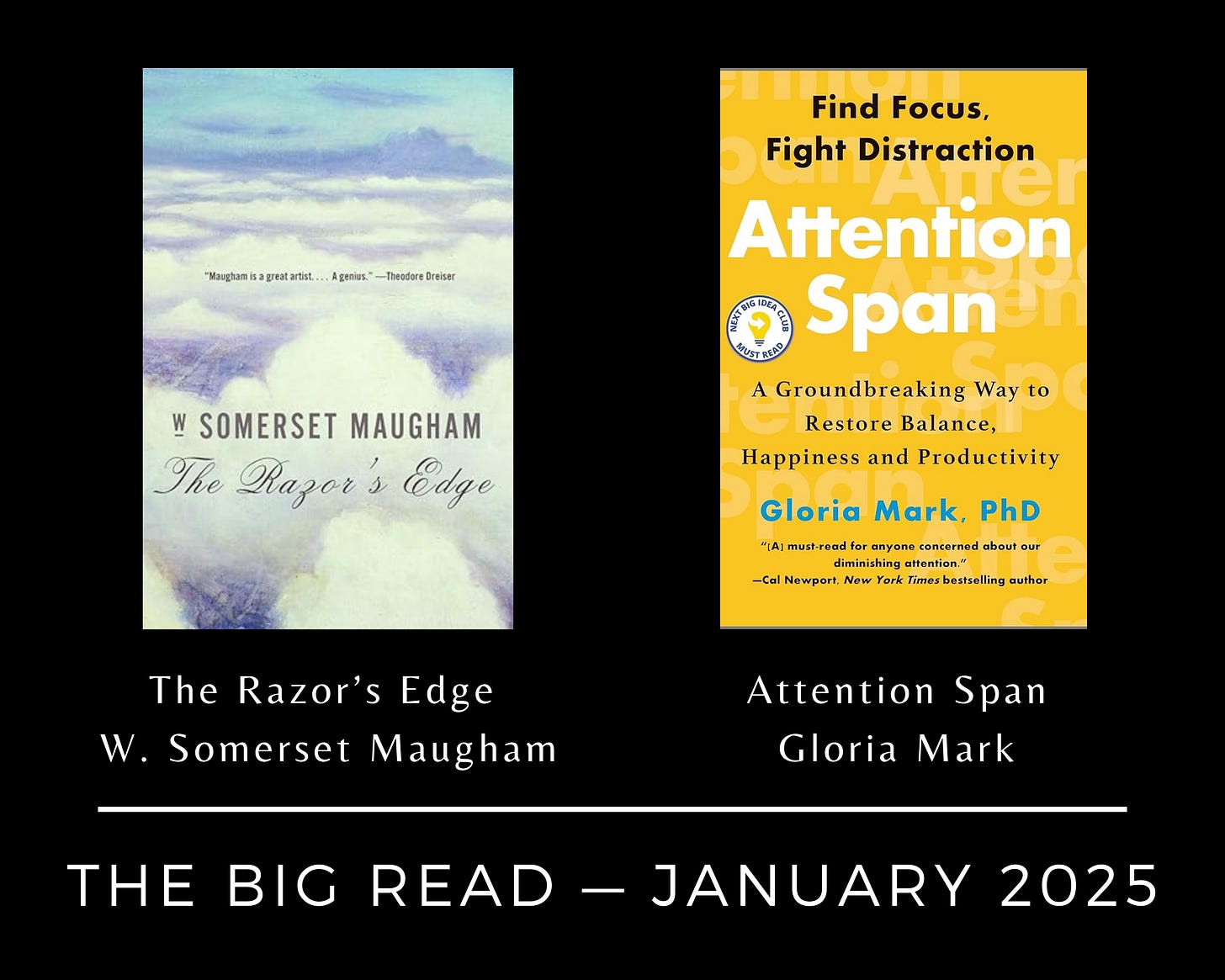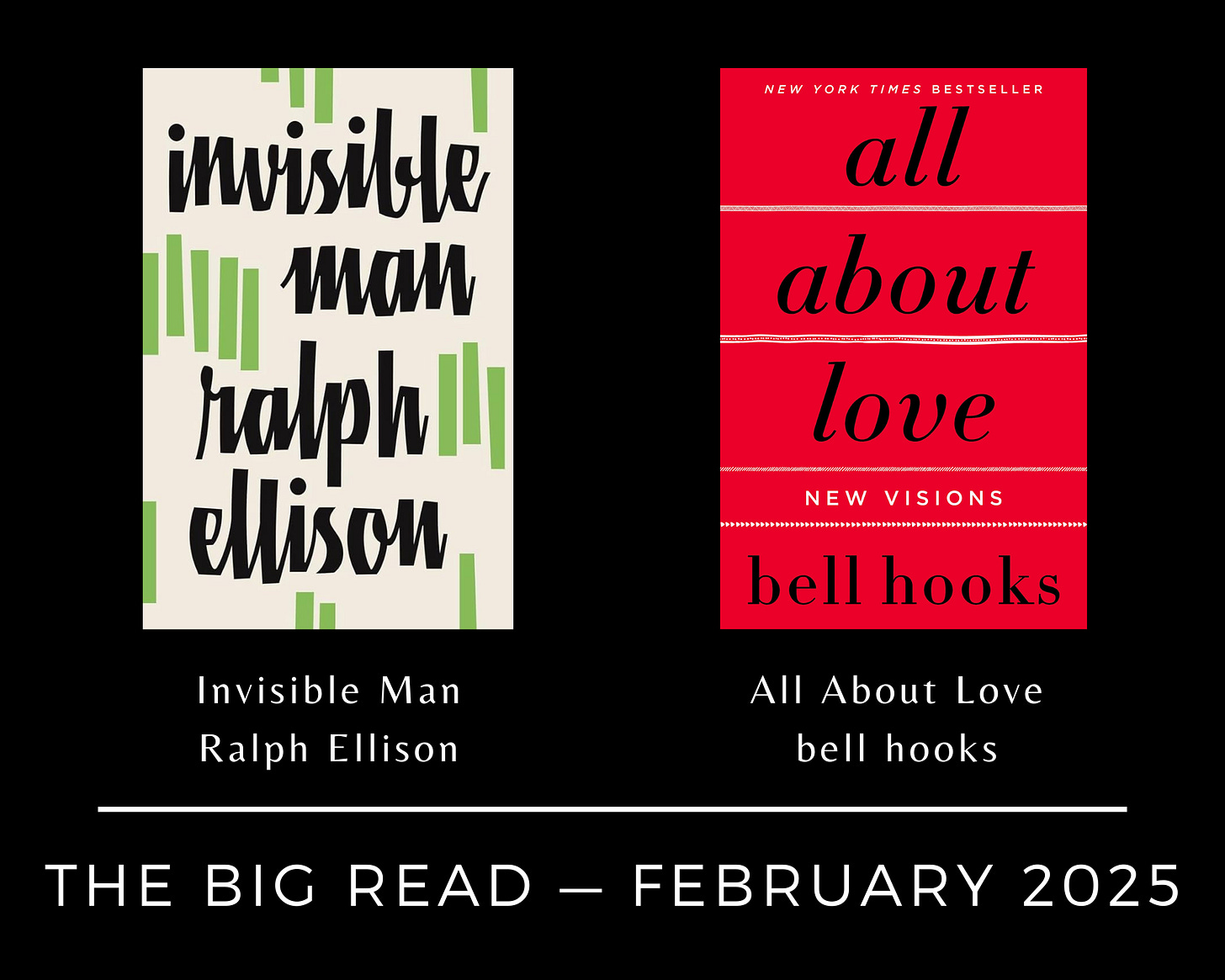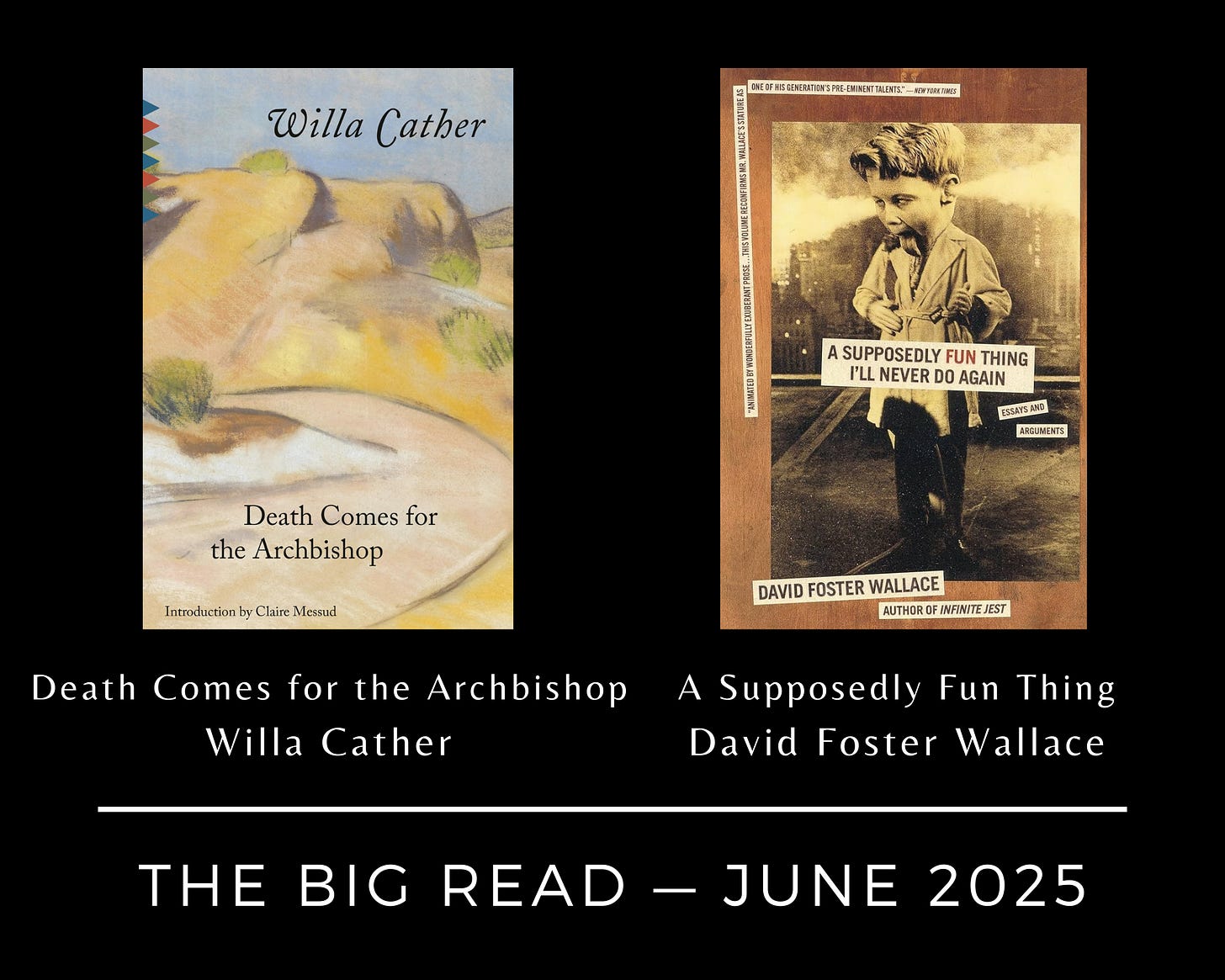Hello, readers!
For the last couple of months, it’s been really fun experimenting with reading multiple books at the same time. Overall, I love the idea. Three books at once, however, is a lot. So in 2025 I’m going to instead offer two tracks per month, one each in fiction and non-fiction. The fiction titles skew classic while the non-fiction titles skew more modern.
Let’s take a look!
The Razor’s Edge is one of the most memorable books I’ve read in the last decade. I can’t wait to revisit it in January.
In the 21st century, nothing has been as commercially hijacked as our attention. Gloria Mark’s Attention Span is a critical read for life in this century.
In February and March, we’ll tackle Ralph Ellison’s monumental Invisible Man, which made Ellison the first Black winner of the National Book Award.
bell hooks’ entire catalog offers essential reading for modern life; All About Love is perfect for February.
David Epstein is one of my favorite writers and thinkers. Range presents a persuasive argument for generalists in a world obsessed with niche. (Check my interview with David here.)
In honor of the May release of Ron Chernow’s Mark Twain, we’re going to spend a couple of months reading Twain. We’ll start with his best known and most enduring works, Huckleberry Finn and Tom Sawyer.
When Breath Becomes Air is on my all-time favorites list and it’s easily the book I recommend the most. I’ve read this memoir a few times and can’t wait to dive in again in April.
In May we’ll continue the Twain theme with one of his lesser known novels, A Connecticut Yankee in King Arthur’s Court.
The connections Steven Johnson finds between history and psychology and modern life are always fascinating. The Infernal Machine is his newest title.
Willa Cather is America’s best author when it comes to frontier life. All of her books are worth reading; Death Comes for the Archbishop is among her most powerful.
David Foster Wallace is unlike any author you’ll ever read. A Supposedly Fun Thing is a roller coaster of an essay collection that offers the perfect introduction to his work.
Ursula Le Guin isn’t afraid to play with big ideas in her novels. The Dispossessed looks at anarchism, utopianism, and more, in a memorable and thought-provoking way. It’ll also offer a connection to Steven Johnson’s The Infernal Machine.
St. Augustine’s Confessions was one of the very first autobiographies and has endured for over 1,600 years for good reason. It offers radical honesty, high-quality prose, and intellectually engaging ideas that have stood the test of time.
George Eliot is best known for Middlemarch, but this much slimmer 1861 novel is perhaps just as potent.
I first read Kim Cross in early 2024 and really appreciated her journalistic approach. I’m excited to dig into this account of a major tornado outbreak.
Their Eyes Were Watching God is one of those books every American should have on their lifetime reading list. Here’s your chance to catch up.
Annie Dillard’s Pulitzer-winning Pilgrim at Tinker Creek sheds light on the author’s unexpected and powerful encounters with nature in her native Virginia.
In October we’ll begin a three-month tour through Dickens’ most beloved novel, David Copperfield. I already can’t wait.
And what’s October without a little spooky reading? In American Scary, Jeremy Dauber dissects the history of the genre.
Ed Yong is easily one of my favorite science writers. An Immense World was an easy pick for my 2023 favorites list and I’m looking forward to diving into his first book, I Contain Multitudes.
Oliver Sacks is one of those rare authors whose work transcends genres and cultural strata. The Man Who Mistook His Wife for a Hat is an incredible read about resiliency and the odd wonders of the human brain.
The benefits of a paid subscription
When you subscribe for $5/month (or $50/year), you’ll get the following:
Weekly recaps with background, contextual material, and highlights from that week’s chapters.
Access to our weekly discussions, where you’ll get invaluable insights from a diverse community of readers.
The motivation and accountability to read more books.
Here’s to 2025!
-Jeremy














Some, yes! Some, no! And some, really? But it is those “really?” selections that just may be
The Goldilocks Choices.
I had to read Huck Finn in high school. The teacher said it was for our humor section in American literature. I was so disappointed not to have a few weeks of good laughter I have avoided Mark Twain ever since (50+ years of avoiding this man). Poorly taught books are a crime in my estimation. Lifetime ramifications.
Intriguing list, Jeremy - thank you! I usually opt for the fiction titles, as I don´t manage to read two (let alone three) books from your tracks simultaneously, but I also finde some of the non-fiction titles fascinating. Happy to end the year with a Dickens title again. Happy Holidays, everyone!